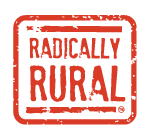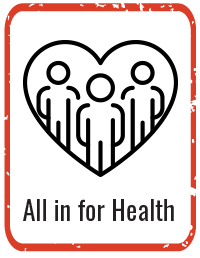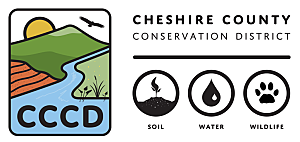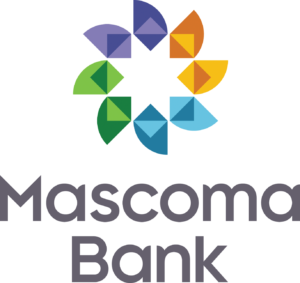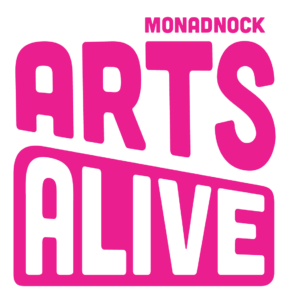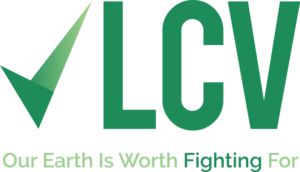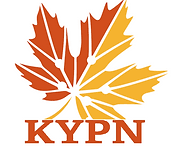We had 569 attendees from 35 states, D.C., and Canada including 81 speakers! Thank you all for joining us for 17 innovative sessions, seven lunchtime roundtables, our national PitchFork Challenge, Livability Slam, and evening CONNECT Event. According to our survey results, 98% of attendees made valuable connections at the summit. A few examples include:
- “I help run a small nonprofit and we made some INCREDIBLE connections with NEA and Americans for the Arts through the arts track. I also got a chance to connect with folks on the journalism and entrepreneurship track. All in all, I learned more about how to make our company sustainable by digging in to curating, promoting and activating local resources.”
- “I met some local folks from Maine that I didn’t know previously with whom I want to connect.”
- “I reconnected with peers in my field that I haven’t seen during Covid.”
- “I met one of the presenters that works with veterans during the farm workshop and traded business cards as SBA provides services and support to veteran owned businesses. A great connection!”
Watch the recap video!
Click each icon to learn more about the track and its sessions.
Keynote Speaker |
The Opening Ceremony kicked off with music from the Windborne Singers, poetry from Alice Fogel, and keynote address by Chloe Maxmin.
Entrepreneurship Track |
Each successive recession in recent history has left in its wake an ever-widening economic gap between rural communities and national trends. Along with a stunning lack of new business formation in rural America, if this trend continues after this current pandemic-induced recession, it will perpetuate ever-widening gaps in income, population, education attainment, innovation, politics, employment and opportunity. Radically Rural seeks to provide solutions, guidelines and models for community leaders, groups and individuals to create a rich culture of entrepreneurship, a thriving local economy and a vibrant community.
Who Should Attend: Entrepreneurs, economic and community development professionals, government leaders, business leaders, community and downtown advocates, entrepreneur support organizations, lenders and other business funders
Track Leaders: Chris Harris, Senior Director of Growth and Strategy, Kansas Leadership Center & Sara Powell, Program Director, Hannah Grimes Center for Entrepreneurship
Policy and Entrepreneurship
September 21, 1:30 PM – 3:00 PM | Hannah Grimes Center
What makes a vibrant entrepreneurial ecosystem? What are the tools and resources that support that? Policy is and should be one of the tools that supports entrepreneur friendly communities. We will discuss the importance and future of policy to support entrepreneurs, local small businesses, and a vibrant rural entrepreneurial ecosystem.
When you visit a thriving small town have you wondered what has contributed to the unique feeling and function of that place? None of it happens by accident, it is the work of engaged and empowered civic leaders supporting entrepreneurs and community members.
Hear from engaged civic leaders, about their successes and challenges in supporting rural entrepreneurial ecosystems via two 45 minute panels:
1a. Policy in Community Wealth Building & Supporting Entrepreneurs
Moderator: Melissa Roberts Chapman, Associate Director of Entrepreneurship and Innovation, Federation of American Scientists
Panelists: Basel Musharbash, Managing Attorney, Basel PLLC; Liz Kelly, Planner and Designer, Resilience Planning and Design; Matt Dunne, Center on Rural Innovation
1b. Grassroots Leadership & Entrepreneurship Support
Moderator: Kristin Leutz, Co-Owner, Colmena Consulting Collective
Panelists: Lea Ann Seiler, Southwest Region Manager, NetWork Kansas; Jeff Murphy, Owner, NOVA Arts/Brewbakers; Jaimie Pesch, Planner, City of Musegon
Leading Adaptively and Entrepreneurship
September 21, 3:30 PM – 5:00 PM | Hannah Grimes Center
Join us for part two of our exploration of policy and rural entrepreneurial ecosystems in an interactive workshop style session. We will spend 90 minutes digging into the gap between the technical work of supporting entrepreneurship and our aspirations for the future of our rural communities. We will begin to ask the questions of what makes this so difficult, and we will hear real stories and examples of how progress happens in rural communities around the country. Participants will leave with a working understanding of how they can start or continue this work back home.
Moderators: Lucy Petroucheva, Civic Engagement Manager, Kansas Leadership Center; Chris Harris, Senior Director of Growth & Strategy, Kansas Leadership Center
Community Journalism Track |
Local journalism, a bedrock for informed and successful small communities, is under threat. More and more towns are losing their local news sources to the economic upheaval facing the news business and dramatic changes in the ways people get their information. We know that when a trusted local news operation leaves a town, taxes increase, bond rates worsen and community economic development suffers. The Community Journalism Track for Radically Rural assembles expert journalists to help small news organizations build sustainability. Each year we pull together a program that is scalable for rural newsrooms, providing advice and tips that build more responsiveness and relevancy.
Who Should Attend: Journalists, community leaders and organizers, law- and policy-makers and government leaders.
Track Leader: Terrence Williams, President & COO, The Keene Sentinel
Covering the Divide
September 21, 1:30 PM – 3:00 PM | Colonial Showroom
An exploration of how news organizations can better serve communities that are split over politics, the pandemic, policing, voting and more.
Moderator: Elizabeth Stephens is the executive editor for the Columbia Missourian and the community newspaper chair at the Missouri School of Journalism. She is an associate professor and has led audience engagement and digital efforts at the Missourian. In her role as digital director at KOMU, she oversaw digital strategy and trained digital producers. Previously, she worked as an editor at SNL Financial in Charlottesville, Va., and copy desk chief at the Columbus (Ga.) Ledger-Enquirer. She holds both a master’s and bachelor’s degree from the University of Missouri.
Panelists: Tony Baranowski, manager of special projects, Cedar Rapids Gazette; Sara Konrad Baranowski ,deputy managing editor, Cedar Rapids Gazette; Peter Huoppi, director, multimedia, The Day, New London, CT, and co-producer of the documentary, “Those People.”
Better Judgment
September 21, 3:30 PM – 5:00 PM | Colonial Showroom
How innovative newsrooms are changing their coverage of cops and courts to provide fairer, more equitable news reporting.
Moderator: Cierra Hinton, publisher, Scalawag. Hinton has an undying love and passion for the complicated South, which she brings to Scalawag where she oversees operations and planning. According to its mission, through journalism and storytelling, Scalawag works in solidarity with oppressed communities in the South to disrupt and shift the narratives that keep power and wealth in the hands of the few.
Panelists: Paul Cuno-Booth, freelance journalist and reporter on several alternative justice projects in New Hampshire. DeLyah Jones, freelance journalist, community engagement consultant and journalism philanthropy program officer.
Crazy Good
September 22, 2:00 PM – 3:30 PM | Colonial Showroom
50 ideas to make you a better journalist.
Speaker: Jeremy Caplan, director of teaching and learning at City University of New York Newmark Graduate School of Journalism. Caplan teaches classes, workshops and webinars on entrepreneurial and digital journalism. He is a former Ford Fellow in Entrepreneurial Journalism at the Poynter Institute, a Wiegers Fellow at Columbia Business School, where he earned his MBA, and Knight-Bagehot Fellow at Columbia Journalism School, where he earned a master’s degree in journalism.
Arts & Culture Track |
The Arts are an expression of our cultural roots, our reality today, and our understanding of what may happen tomorrow, and, as such, are vital to the health of our rural communities. The arts feed our sense of belonging, understanding and social development and are an excellent means of sharing culture and connecting through beauty and stories. The arts can also be an intrinsic part of economic development – instigating tourism, downtown spending, and more. Join us at Radically Rural as we explore stories from rural communities about how the arts build community connections, grow pride in our rural spaces, and celebrate the growing diversity of our communities.
Who Should Attend: Community Development professionals, Planners, Architects and Designers, Philanthropists, Nonprofit and Business Grantmakers and Evaluators, Municipal and City leaders, Developers, Writers and Journalists, Local arts agencies, Arts organization leaders and programming directors and development officers
Track Leader: Jessica Gelter, Executive Director, Arts Alive
Citizens Institute on Rural Design: Good Design is Transformative
September 21, 1:30 PM – 3:00 PM | Colonial Mainstage
How does physical space, and the process of transforming it, change a community?
Speakers will share information and stories about the Citizens Institute on Rural Design – a program that brings designers and architects to rural communities across the US and its territories. The program utilizes design to address community challenges and build community cohesion, with a focus on community development. Two projects recently part of the CIRD program will join the session to share stories of how design transformed their small towns.
Speakers: Courtney Spearman of the National Endowment for the Arts; Stephen Sugg of the Housing Assistance Council; Trevellya Fordahmed of Mount Zion Baptist Church Preservation Society; Jean Grigsby of Snow Pond Center for the Arts
Identifying and Connecting with Rural BIPOC Arts & Culture Communities
September 21, 3:30 PM – 5:00 PM | Colonial Mainstage
Rural America is diversifying. How can communities identify and celebrate their diverse cultural assets?
Dr. Genna Styles-Lyas of Americans for the Arts will talk about a new initiative on collecting information on BIPOC organizations and communities across America as part of their Arts and Economic Prosperity Study 6. Dr. Styles-Lyas is developing outreach ideas with communities across the country – including tiny rural ones like ours that think of themselves as predominantly white. She will share what she’s discovering about diversity in rural America’s arts communities and how it may change the way we think about arts and culture equity in funding, resource allocation, accessibility, and inclusion. During the session we will also hear stories from two rural communities that are participating in the study.
Speakers: Dr. Genna Styles-Lyas, Americans for the Arts; Selbe Bartlett, Chatham Arts Council, Inc.; Eliza Tudor, Nevada County Arts Council
A Taste of Songwriting
September 22, 2:00 PM – 3:30 PM | Colonial Greenroom
Looking for a creative way to engage your community in a vision? In this Radical session, participants will learn by doing. We will collaboratively create a song together that celebrates radically rural living and community-building. Writing a song is a fun and creative way to develop ideas, theses, or messages about a passion, a community experience, or a vision for the future! In this session, you’ll navigate idea- and lyric-generating prompts, give “yes, and” feedback, understand “the smell test” that editors practice in everyday journalism, and utilize some basic open source music production elements to create and record a song! Collaborative songwriting is a great tool for community planners, organizers, and leaders – to get folks creatively engaged in envisioning ideas or processing experiences. This workshop is for anyone, literally anyone, who likes music or who has ever written angsty poetry or who feels like trying something totally different! The song written during this session will be shared during the Livability Slam.
Speakers: Becky Karush, founder, Read to me Literary Arts; Dalton Zbierski, editor, Turley Publications; Daniel Roeder, Chief Academic Officer, David Z Foundation
After the 2022 Summit, Daniel Roeder finalized the RR theme song created at this session. Watch the music video below!
Land & Community Track |
Land use permeates conversations in rural communities, from forestry to cattle grazing, to farming and to recreation. The livelihoods of these towns are often tied to the surrounding landscape and lands. Because the health of this land is impacted by the climate crisis, communities must act, adjust and adapt. Join Radically Rural as we introduce how people can better connect to the land for economic, social and healing benefits.
Who Should Attend: Farmers, Agricultural Service Providers, Environmental Professionals, Public Health Professionals, Planners, Students of Environment and Agriculture Programs, Community members interested in improving the agricultural economy of their region, Community members interested in improving public health and land stewardship
Track Leaders: Amanda Littleton, District Manager, Cheshire County Conservation District & Benee Hershon, Outreach Coordinator, Cheshire County Conservation District
Grain Sheds
September 21, 1:30 PM – 3:00 PM | Keene Public Library – Heberton Hall
Grainsheds are transforming rural economies while engaging community stakeholders across professions. Grainsheds build and connect regional grain supply chains to support local businesses and empower rural economies, they create cohesive networks that enhance collaboration between local growers, processors, and makers, while also increasing awareness and understanding of the value of region grains. This session provides a platform for speakers from different roles throughout the grainshed to share its impact, and to provide a toolkit for attendees to build and engage their regional grianshed.
Speakers: Emily Cayer, Northeast Grainshed Alliance; Andrea Stanley, maltster and miller, Valley Malt and Ground Up Grain; Lenny Bussanich, River Valley Community Grains; Barry Labendz, brewer, Kent Falls Brewing Co.; Sarah Cox, farmer, miller, and CSA, Tuckaway Farm; Hannah Smalls, outreach coordinator, Northeast Grainshed Alliance; Shawn Gingue & Sara Gingue, owners, NEK Grains; Blair Marvin, baker & owner, Elmore Mountain Bread; Amy Halloran, writer, Northeast Grainshed Alliance
Climate Activism: Engaging Rural Youth – Collab with Clean Energy
September 21, 3:30 PM – 5:00 PM | Keene Public Library – Heberton Hall
As the impacts of climate change become apparent throughout rural life, now more than ever, it is time to act. In the past few years, youth climate activists have garnered worldwide attention for their commitment to our planet and our future. This panel will spotlight youth activists engaging rural communities.
Moderator: Anthea Lavallee, Executive Director of Hubbard Brook Research Foundation
Panelists: Phoebe Dolan, Co-Director of Maine Youth Power; Nikhil Chavda of 350NH; Nat Wood of Keene State College and the Emerging Leaders Collaborative
Inclusive Outdoor Recreation
September 22, 2:00 PM – 3:30 PM | Keene Public Library – Heberton Hall
When you think of a hiker, skier, or camper, who do you picture? Due to historic discrimination outdoor spaces lack inclusivity. Through prioritizing inclusivity, safe spaces, and accessibility, these organizations work towards making the outdoors a welcoming place for all. Hear from panelists on the communities they serve, and the ways that they work to build inclusivity and engagement in rural and non-rural spaces.
Speakers: Ana Seiler, The Venture Out Project; Loren Penman, Commissioner, Genesee Region Parks
Clean Energy Track |
The climate crisis is impacting rural communities disproportionately. These communities frequently depend on agriculture and tourism economies, but changes in weather patterns threaten both. Residents of rural communities also spend more of their household dollars on energy, studies show. Investment in energy efficiency, renewables and community solutions to electricity purchasing can provide opportunities to reduce costs, increase comfort and enhance rural living and resilience. Radically Rural seeks to provide solutions, guidelines and models for community leaders, groups and individuals to promote clean energy as a means to combat the climate crisis.
Who Should Attend: Municipal and city leaders, community, regional and statewide leaders; community organizers and energy committee members (local, regional, statewide); clean energy activists and advocates, farmers and foresters
Track Leader: Rob Werner, State Director for NH, League of Conservation Voters
Clean Energy Infrastructure: Opportunities and How to Access Federal Funds
September 21, 1:30 PM – 3:00 PM | Keene Public Library – Cohen Hall
The Bi-Partisan infrastructure Bill includes a variety of provisions to support the development of clean energy infrastructure, including electric vehicle (EV) charging infrastructure and electric school buses for school districts among many other clean energy initiatives. This session will provide information on how federal funds to support these initiatives will flow to the states and the processes to obtain funding.
Moderator: Rob Werner, NH State Director of the League of Conservation Voters
Panelists: Jim O’Brien, Director of External Affairs at The Nature Conservancy; James Penfold, Director of eMobility Solutions at ReVision Energy
Climate Activism: Engaging Rural Youth – Collab with Land & Community
September 21, 3:30 PM – 5:00 PM | Keene Public Library – Heberton Hall
As the impacts of climate change become apparent throughout rural life, now more than ever, it is time to act. In the past few years, youth climate activists have garnered worldwide attention for their commitment to our planet and our future. This panel will spotlight youth activists engaging rural communities.
Moderator: Anthea Lavallee, Executive Director of Hubbard Brook Research Foundation
Panelists: Phoebe Dolan, Co-Director of Maine Youth Power; Nikhil Chavda of 350NH; Nat Wood of Keene State College and the Emerging Leaders Collaborative
Natural Climate Solutions and Climate Action
September 22, 2:00 PM – 3:30 PM | Keene Public Library – Cohen Hall
As Congress prepares to reauthorize the federal farm bill in 2023 (the farm bill is reauthorized on a five year cycle), opportunities to encourage and support local agriculture production and natural climate solutions abound. This session will examine various programs and initiatives that will be considered by Congress and the implications for building a more resilient agricultural sector and a clean energy economy.
Panelists: Congresswoman Annie Kuster (Invited); Kathleen Merrigan, Executive Director of the Swette Center for Sustainable Food Systems at Arizona State; Britt Lundgren, Senior Director of Sustainability and Government Affairs at Stonyfield Farm; Allan Reetz, Director of Public and Government Affairs at Hanover Co-Op Food Stores
All in for Health Track |
Why should community members care about health? A community that cares about the health of its members cultivates a vibrant and sustainable place for living, working and playing. A healthy community positions itself to attract new businesses and residents, keeps young families in town, lowers costs for employers, and helps the elderly age gracefully in place. It takes all of us to create this vision of a healthy community. Join us in the All in for Health track at Radically Rural to learn more about your role in this picture. This year we’ll focus on the foundation of community well-being sculpted by the social determinants of health. We will discuss topics such as how adequate housing and community-based behavioral health resources can improve the lives of rural communities. What specifically can you take away from this track? Tangible tools to bring home: replicable ideas from model projects, innovative ideas to spark deep conversation about how everyone can contribute to a healthy and vibrant community.
Who Should Attend: Community organizers, municipal and business leaders, entrepreneurs, activists, philanthropists, the general public, and healthcare workers.
Track Leader: Julia Johnston, Knowledge Management Specialist, ChildKind International
Health from the Start – Collab with Main Street
September 21, 3:30 PM – 5:00 PM | Keene Public Library – Cohen Hall
How can you strengthen your community’s efforts to build a sustainable vision of health and well-being? Join us to hear the broad brush on social determinants of health. Shelter and a safe environment are core elements for raising a healthy community. Rural areas are losing population: what can we do to provide adequate housing for all, and support for young people? Building a strong workforce and conscientious community means supporting the children. Learn how we can help them succeed in school and grow into adults with meaningful work and connections in our community.
Ericka Burroughs-Girardi will ground us in the County Health Rankings model and approach to understanding how it takes all of us working together to build a healthy community. Romi Hall will share examples from NeighborWorks America rural communities addressing the critical housing shortages leaving people without homes. Kini-Ana Tinkham will explain the Maine Resilience Building Network data and science about the impact of trauma and the positive impact of resilience on children’s brain development. They will share inspiring stories of the Mattering Initiative to ensure all youth can see how they matter, in families, schools and communities. We close with suggestions for you to take home: what can you do, regardless of your position or role, to build a healthier and more resilient community?
Speakers: Ericka Burroughs-Girardi, Senior Outreach Specialist, County Health Rankings & Roadmaps; Romi Hall, Director, Healthy Homes and Communities, Neighborworks America; Kini-Ana Tinkham, Executive Director, Maine Resilience Building Network
Homegrown Care: Care you can Provide
September 22, 2:00 PM – 3:30 PM | Colonial Mainstage
Health is grown like a garden and it takes more than just one person. Just as a farm is a family, a healthcare worker without the support of its residents causes gaps in care. Join Homegrown Care to learn how to cultivate a community centered around the well-being of its residents. This session features a panel of community health professionals.
These behavioral health experts are equipped with knowledge of trauma-informed care and model projects designed by NAMI, Mental Health First Aid, and SafeTALK Suicide. We’ll examine these resources together and discuss how you can implement them in your own town by creating local boards grounded in Corinne’s experience with Telluride’s Behavioral Health Solutions Panel. Phil will discuss the Monadnock Assembly on Trauma and Transformation (MATT), a catalyst for all members of the community to learn the strategies to inspire and transform our response to trauma. Join us in learning about behavioral health policy and reform, a topic that cries for support during this mental health epidemic coinciding with the COVID-19 pandemic. Rural regions come together as a community to collaborate on how to help heal mind, body and soul.
Speakers: Ray Merenstein, Executive Director of NAMI Colorado; Corinne Cavendar, Behavioral Health Solutions Executive Assistant from Tri-County Health Network’ Phil Wyzik, Executive Director of Monadnock Family Services
Main Street Track |
Main Streets are the socio-economic centers of rural communities. Their ability to thrive is essential to the continued economic success of small cities and towns, and these centers imbue their residents with a sense of place. This awareness is often tied to the past, inextricability set in the present and looking toward the future. Facing challenges of today means keeping Main Street surviving and even thriving. Tomorrow’s future doesn’t mean leaving everything behind but, rather, acknowledging what to save and what to improve. Reimagining Main Streets can enliven stakeholders and residents in fundamentally new ways. Join us at Radically Rural as we explore the rebirth of Main Street and the positive impacts available to rural communities.
Who Should Attend: Business owners and professionals, municipal and city planners, community members, volunteers and individuals interested in community revitalization
Track Leader: Todd Horner, Senior Planner, Southwest Regional Planning Committee
Health from the Start – Collab with All in for Health
September 21, 3:30 PM – 5:00 PM | Keene Public Library – Cohen Hall
How can you strengthen your community’s efforts to build a sustainable vision of health and well-being? Join us to hear the broad brush on social determinants of health. Shelter and a safe environment are core elements for raising a healthy community. Rural areas are losing population: what can we do to provide adequate housing for all, and support for young people? Building a strong workforce and conscientious community means supporting the children. Learn how we can help them succeed in school and grow into adults with meaningful work and connections in our community.
Ericka Burroughs-Girardi will ground us in the County Health Rankings model and approach to understanding how it takes all of us working together to build a healthy community. Romi Hall will share examples from NeighborWorks America rural communities addressing the critical housing shortages leaving people without homes. Kini-Ana Tinkham will explain the Maine Resilience Building Network data and science about the impact of trauma and the positive impact of resilience on children’s brain development. They will share inspiring stories of the Mattering Initiative to ensure all youth can see how they matter, in families, schools and communities. We close with suggestions for you to take home: what can you do, regardless of your position or role, to build a healthier and more resilient community?
Speakers: Ericka Burroughs-Girardi, Senior Outreach Specialist, County Health Rankings & Roadmaps; Romi Hall, Director, Healthy Homes and Communities, Neighborworks America; Kini-Ana Tinkham, Executive Director and Ruby Parker, Engagement and Education Director, Maine Resilience Building Network
Rehumanizing Rural Main Street: Assessing Walkability in Small Downtowns and Village Centers
September 22, 2:00 PM – 3:30 PM | Hannah Grimes Center
A rural main street is more than a conveyance for motorized vehicles. It’s also a critical source of public space, a site of human activity. It’s a place where people socialize, hold civic discourse, engage in commerce, celebrate holidays, recreate, engage in healthy active transportation (walking, bicycling, and transit), and more. Yet these vital functions are typically treated as secondary to the efficient movement of vehicular traffic. How might rural communities better examine the full potential of their main streets? What might they gain by accounting for the needs of those traveling on foot, by bicycle, and via wheelchair and other mobility devices.
In this session, we’ll explore these questions and others, both in the classroom and in the field. Mark Fenton, a nationally-recognized active transportation expert, will lay out the case for walkable main streets in rural communities, through the lens of public health and the Covid pandemic, economic development, environmental sustainability, and community cohesion. Then he’ll lead participants through a walk audit, a process that involves walking through a neighborhood in order to better understand opportunities to improve the experience of pedestrians and mobility aid users. The outdoor portion of the session will use downtown Keene as a case study.
Speaker: Mark Fenton, Adjunct Professor, Tufts University
Roundtable Conversations |
Roundtable Conversations are guided discussions that take place during the lunch block. Attendees can enjoy takeout from a local restaurant downtown, while learning about topics of interest to them, networking, and interacting with rural professionals from across the country.
Addressing the Housing Crisis with Data: NACo’s County Explorer Mapping Tool
September 21, 12:00 PM – 1:15 PM | Hannah Grimes Center – Roxbury/Wadsworth Room (IN PERSON ONLY)
The National Association of Counties (NACo) County Explorer is a powerful, interactive mapping tool designed to help government, community and business leaders alike better understand their communities. With over 1,000 county-level indicators, the tool contains a wealth of information which all kinds of local leaders can use to tackle a broad range of issues, including the housing crisis. Join NACo Research to discuss the county-level housing data and profiles available on County Explorer, how data can translate into action and what solutions counties across the nation are implementing to provide safe, affordable homes to residents.
Speaker: Jonathan Harris, Associate Research Director, NACo
Unifying Your Independent Farm & Food Entrepreneurs into a Visible Growth Sector
September 21, 12:00 PM – 1:15 PM | Hannah Grimes Center – Colony Room (IN PERSON ONLY)
One definite competitive edge of rural communities is its ability to produce food. The pandemic highlighted the importance of localized food supply chains and spurred growth for many local food businesses. As pandemic disruptions recede, soaring energy and commodity prices are making small-scale, locally-produced food more price competitive. Seeing an opportunity for growth in this sector, the Hannah Grimes Center (HGC) customized its 7-week Business Lab curriculum for farm entrepreneurs and another for added-value food entrepreneurs. HGC and its farm and food partners will share experiences in serving these two entrepreneur groups and invite attendees’ ideas, experience, and input. This discussion is the foundation for an Entrepreneur Track session at the 2023 RR Summit focused on how to identify, support and align a region’s existing farm and food entrepreneurs into an economic driver for a rural community. This roundtable discussion is particularly focused on the aspect of providing support to these entrepreneurs.
Speakers: Mary Ann Kristiansen, Exexcutive Director, Hannah Grimes Center for Entrepreneurship; Jim Verzino, President, Creators Financial, LLC; Andy Pressman, NCAT
Establishing a Rural Social Arts Practice Residency
September 21, 12:00 PM – 1:15 PM | Brewbakers Cafe (IN PERSON ONLY)
For the month of October 2022 there will be an artist’s residency in Keene. This is a pilot project for what we hope will become an established residency in social practice art. This project began taking form a year and a half ago and last year I chaired a panel discussion on rural arts residencies. The Keene artists’ residency is designed to bring accomplished social practice artists to Keene to work with and within the community to create opportunities for engaged participation, reflection and the making of art. The project will be open, inclusive and will have as its’ primary goal: engaging the community in a shared process that engages social action and is followed by reflection. There is no specific requirement that the project result in art objects. Learn more at https://www.novaarts.org/residency.
Speaker: Craig Stockwell, Artist
The Power of Songs
September 22, 12:00 PM – 1:15 PM | The Colonial Greenroom (IN PERSON ONLY)
Speakers: Becky Karush, founder, Read to me Literary Arts; Dalton Zbierski, editor, Turley Publications; Daniel Roeder, Chief Academic Officer, David Z Foundation
How Rural Homeowners can Become Home Creators: ADUs and Home Hacking
September 22, 12:00 PM – 1:15 PM | Roxbury/Wadsworth Room (IN PERSON ONLY)
In today’s housing market, it’s not just urban areas that are experiencing challenges. Many rural communities lack the housing they need in order to thrive–to attract new families, to recruit essential workers, or to enable older residents to age in place. Overcoming these challenges will require a variety of approaches, including those that involve everyday homeowners. Accessory dwelling units (ADU) are one way homeowners can create a new place to live, whether for a family member, a renter, or themselves if they’re interested in downsizing. In a nutshell, an ADU is a home built attached or next to a primary residence. A related approach is house hacking–renting out portions of one’s home to generate income. In this interactive workshop, participants will discuss factors that influence both of these bottom-up techniques, including site planning, financing, and more.
Speakers: Ivy Vann, Principal, Ivy Vann Town Planning and Urban Design; Christopher Lee, Designer & Developer, Backyard ADUs; Tim O’Reilly, Small Home Advisor, Backyard ADUs
Welcoming Immigrants to Our Rural Communities
September 22, 12:00 PM – 1:15 PM | Brewbakers Cafe (IN PERSON ONLY)
Three interconnected groups in the Keene area have been working to help make this a welcoming place for immigrants and to bring more diversity to our rural region. Keene Immigrant and Refugee Partnership (KIRP) set out in 2016 to address the needs of our existing immigrant communities, and to encourage newcomers to the U.S. to locate here. Spinning off from this, Project Home was founded to bring asylum seekers into host homes in the region, and to support them fully as their asylum cases proceed through the immigration system. Team Monadnock was organized recently to support refugees from Afghanistan. We will share our experiences, including both joys and challenges, and the immeasurable benefits that accrue to a community that welcomes and actively supports a diverse population of immigrants.
Speakers: Eric Swope, KIRP, co-founder of Team Mondanock; and Judy Reed, KIRP, co-founder of Project Home
Investing in Rural Leadership
September 22, 11:45 AM – 12:30 PM | (VIRTUAL)
Join your peers in a [virtual] conversation about investing in rural community leadership. Christine Gilmore, with Rural Development Initiatives, will facilitate a 45-minutes conversation about what has worked in your community, how you were successful, and how you’d like to center capacity building in your community. This is an open format and you are encouraged to bring your own success stories and questions to the conversation. We hope that by the end of this discussion you will be able to identify opportunities for your own community capacity building.
Speaker: Christine Gilmore, Leadership Services Business Manager, Rural Development Initiatives
